
BBC Sherlock Fan Forum - Serving Sherlockians since February 2012.
- This Is The Phantom Lady
- Threatened Knighthood
 Offline
Offline 
- From: Home of Hamlet (Denmark)
- Registered: February 6, 2014
- Posts: 10,183
Re: The Hollow Crown: The Wars of the Roses (was "Richard III")
But the real Richard DID have scoliosis
~~~~~~~~~~~~~~
"Don't talk out loud, you lower the IQ of the whole street!"
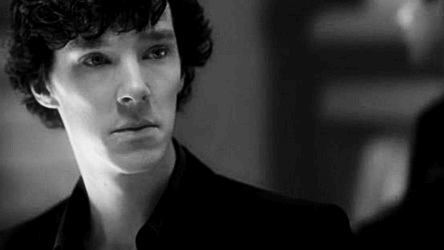
"Oh Watson. Nothing made me... I made me"
"Luuuuurve Ginger Nuts"
Tumblr[/url] I [url=]AO3
#IbelieveInSeries5
- Liberty
- Moderator
 Offline
Offline 
- Registered: June 29, 2014
- Posts: 5,983
Re: The Hollow Crown: The Wars of the Roses (was "Richard III")
Yes, but I don't think he had kyphosis (or not pronounced anyway). The play and the photos of Benedict show kyphosis rather than scoliosis (or both), I think.
Last edited by Liberty (May 4, 2016 7:13 pm)
- nakahara
- Threatened Knighthood
 Offline
Offline 
- Registered: February 22, 2014
- Posts: 11,979
Re: The Hollow Crown: The Wars of the Roses (was "Richard III")
besleybean wrote:
(And I say this as a Yorkist)
At the end of the day, he's the prime suspect in murdering 2 young boys.
Josephine Tey in her "Daughter of Time" has another opinion on the matter:
‘Know what I find the convincing thing in the case for Henry’s guilt?’
‘What?’
‘The mystery.’
‘Mystery?’
‘The mysteriousness. The hush-hush. The hole-and-corner stuff.’
‘Because it is in character, you mean?’
‘No, no; nothing as subtle as that. Don’t you see: Richard had no need of any mystery; but Henry’s whole case depended on the boys’ end being mysterious. No one has ever been able to think up a reason for such a hole-and-corner method as Richard was supposed to have used. It was a quite mad way to do it. He couldn’t hope to get away with it. Sooner or later he was going to have to account for the boys not being there. As far as he knew he had a long reign in front of him. No one has ever been able to think why he should have chosen so difficult and dangerous a way when he had so many simpler methods at hand. He had only to have the boys suffocated, and let them lie in state while the whole of London walked by and wept over two young things dead before their time of fever. That is the way he would have done it, too. Goodness, the whole point of Richard’s killing the boys was to prevent any rising in their favour, and to get any benefit from the murder the fact of their deaths would have to be made public, and as soon as possible. It would defeat the whole plan if people didn’t know that they were dead. But Henry, now. Henry had to find a way to push them out of sight. Henry had to be mysterious. Henry had to hide the facts of when and how they died. Henry’s whole case depended on no one’s knowing what exactly happened to the boys.’
And this one:
As he was about to shut the senior of the two educators his eye fell on the beginning of Henry VII’s reign, and he read: ‘It was the settled and considered policy of the Tudors to rid themselves of all rivals to the throne, more especially those heirs of York who remained alive on the succession of Henry VII. In this they were successful, although it was left to Henry VIII to get rid of the last of them.’
He stared at this bald announcement. This placid acceptance of wholesale murder. This simple acknowledgement of a process of family elimination.
Richard III had been credited with the elimination of two nephews, and his name was a synonym for evil. But Henry VII, whose ’settled and considered policy’ was to eliminate a whole family was regarded as a shrewd and far-seeing monarch. Not very lovable perhaps, but constructive and painstaking, and very successful withal.
Grant gave up. History was something that he would never understand.
-----------------------------------
I cannot live without brainwork. What else is there to live for? Stand at the window there. Was there ever such a dreary, dismal, unprofitable world? See how the yellow fog swirls down the street and drifts across the dun-coloured houses. What could be more hopelessly prosaic and material? What is the use of having powers, Doctor, when one has no field upon which to exert them?

- nakahara
- Threatened Knighthood
 Offline
Offline 
- Registered: February 22, 2014
- Posts: 11,979
Re: The Hollow Crown: The Wars of the Roses (was "Richard III")
Liberty wrote:
Yes, but I don't think he had kyphosis (or not pronounced anyway). The play and the photos of Benedict show kyphosis rather than scoliosis (or both), I think.
His deformity is exaggerated in stride with Shakespeare´s potrayal of Richard III whose goal was to portray not merely a flawed human being, but kind of a monster (as Tudor propaganda portrayed him) and this kind of deformation helped him to cement this idea in people´s minds. That´s why it´s not very realistic, but it´s faithful to Shakespeare´s vision of the character, I guess.
-----------------------------------
I cannot live without brainwork. What else is there to live for? Stand at the window there. Was there ever such a dreary, dismal, unprofitable world? See how the yellow fog swirls down the street and drifts across the dun-coloured houses. What could be more hopelessly prosaic and material? What is the use of having powers, Doctor, when one has no field upon which to exert them?

- Liberty
- Moderator
 Offline
Offline 
- Registered: June 29, 2014
- Posts: 5,983
Re: The Hollow Crown: The Wars of the Roses (was "Richard III")
Oh yes, and that's what I meant by "the play" ... it would be kind of odd to play him without a physical deformity (although I'm sure it could be done). But as the discovery of his skeleton is quite recent, I do wonder if it has influenced the production, hence having it not so noticeable clothed in active scenes, but striking in that unclothed scene where Richard talks about it.
- SusiGo
- The game is never over (moderator)
 Offline
Offline 
- From: Germany
- Registered: June 5, 2012
- Posts: 22,965
Re: The Hollow Crown: The Wars of the Roses (was "Richard III")
Yesterday I watched the first part and it was amazing. Very clever editing of the plays to make everything more coherent and understandable without getting too simple. The actors are excellent, especially Sophie Okonedo. Tom Sturridge made the best of a very unrewarding part, i.e. Henry VI. And while there are only few female parts those were cast and acted wonderfully: Sophie Okonedo as Queen Margaret, Sally Hawkins as Duchess of Gloucester, and Laura Frances-Morgan as Joan of Arc (although some people were wondering why she had a Northern English accent).
And the "cliffhanger" was just great. ![]()
------------------------------
"To fake the death of one sibling may be regarded as a misfortune; to fake the death of both looks like carelessness." Oscar Wilde about Mycroft Holmes
"It is what it is says love." (Erich Fried)
“Enjoy the journey of life and not just the endgame. I’m also a great believer in treating others as you would like to be treated.” (Benedict Cumberbatch)

- besleybean
- Threatened Knighthood
 Offline
Offline 
- From: Carnoustie, Angus, Scotland.
- Registered: October 4, 2012
- Posts: 21,376
Re: The Hollow Crown: The Wars of the Roses (was "Richard III")
Yes, I thought they were all good, including Tom.
Great to get the glimpse of Richard at the end.
Yes, I wondered about Joan's accent, too
I thought the episode brilliantly showed how well a play can be filmed...by going between the English and French camps, it really built up the tension to great effect.
Can't wait to see next week's.
---------------------------------------------------------------------------------------------------------------------------------------------------------------
- This Is The Phantom Lady
- Threatened Knighthood
 Offline
Offline 
- From: Home of Hamlet (Denmark)
- Registered: February 6, 2014
- Posts: 10,183
Re: The Hollow Crown: The Wars of the Roses (was "Richard III")
Will there be re-runs? I have a bit of a problem on Saturday (and I understand Ben is already appearing in that episode...)
I have to watch the Eurovision and support my friends from when I worked with the Irish (provided they make the final, fingers crossed!)
~~~~~~~~~~~~~~
"Don't talk out loud, you lower the IQ of the whole street!"

"Oh Watson. Nothing made me... I made me"
"Luuuuurve Ginger Nuts"
Tumblr[/url] I [url=]AO3
#IbelieveInSeries5
- SusiGo
- The game is never over (moderator)
 Offline
Offline 
- From: Germany
- Registered: June 5, 2012
- Posts: 22,965
Re: The Hollow Crown: The Wars of the Roses (was "Richard III")
It should be on iPlayer for some weeks.
I am not sure if it was Benedict as Richard at the end but the way they introduced the character was amazing.
------------------------------
"To fake the death of one sibling may be regarded as a misfortune; to fake the death of both looks like carelessness." Oscar Wilde about Mycroft Holmes
"It is what it is says love." (Erich Fried)
“Enjoy the journey of life and not just the endgame. I’m also a great believer in treating others as you would like to be treated.” (Benedict Cumberbatch)

- besleybean
- Threatened Knighthood
 Offline
Offline 
- From: Carnoustie, Angus, Scotland.
- Registered: October 4, 2012
- Posts: 21,376
Re: The Hollow Crown: The Wars of the Roses (was "Richard III")
Yes, I'm not sue it was Benedict either...but I still gave a squee!
---------------------------------------------------------------------------------------------------------------------------------------------------------------
- nakahara
- Threatened Knighthood
 Offline
Offline 
- Registered: February 22, 2014
- Posts: 11,979
Re: The Hollow Crown: The Wars of the Roses (was "Richard III")
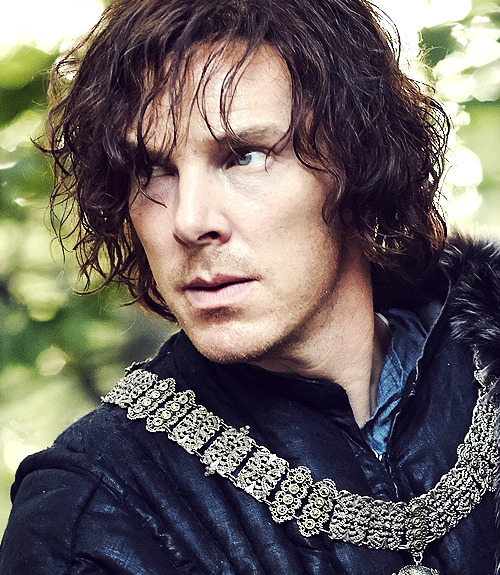
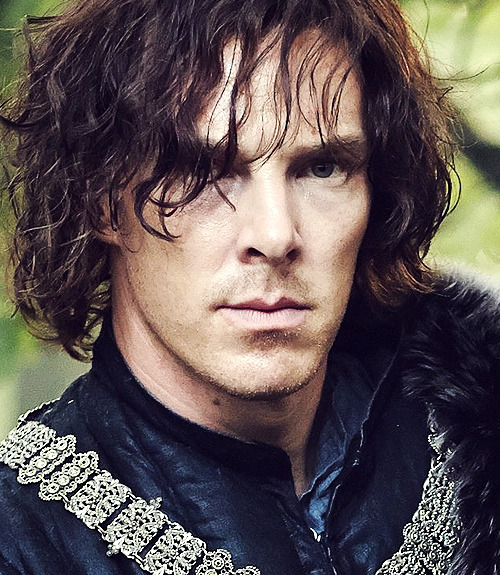
-----------------------------------
I cannot live without brainwork. What else is there to live for? Stand at the window there. Was there ever such a dreary, dismal, unprofitable world? See how the yellow fog swirls down the street and drifts across the dun-coloured houses. What could be more hopelessly prosaic and material? What is the use of having powers, Doctor, when one has no field upon which to exert them?

- SusiGo
- The game is never over (moderator)
 Offline
Offline 
- From: Germany
- Registered: June 5, 2012
- Posts: 22,965
Re: The Hollow Crown: The Wars of the Roses (was "Richard III")
I know he is a villain but still - thud. ![]()
------------------------------
"To fake the death of one sibling may be regarded as a misfortune; to fake the death of both looks like carelessness." Oscar Wilde about Mycroft Holmes
"It is what it is says love." (Erich Fried)
“Enjoy the journey of life and not just the endgame. I’m also a great believer in treating others as you would like to be treated.” (Benedict Cumberbatch)

- besleybean
- Threatened Knighthood
 Offline
Offline 
- From: Carnoustie, Angus, Scotland.
- Registered: October 4, 2012
- Posts: 21,376
Re: The Hollow Crown: The Wars of the Roses (was "Richard III")
Phwoar!
---------------------------------------------------------------------------------------------------------------------------------------------------------------
- This Is The Phantom Lady
- Threatened Knighthood
 Offline
Offline 
- From: Home of Hamlet (Denmark)
- Registered: February 6, 2014
- Posts: 10,183
Re: The Hollow Crown: The Wars of the Roses (was "Richard III")
I'll have to find a way to make the Iplayer work then! Thanks for the hint!
And WOW. He looks amazing!
~~~~~~~~~~~~~~
"Don't talk out loud, you lower the IQ of the whole street!"

"Oh Watson. Nothing made me... I made me"
"Luuuuurve Ginger Nuts"
Tumblr[/url] I [url=]AO3
#IbelieveInSeries5
- miriel68
- British Government
 Offline
Offline 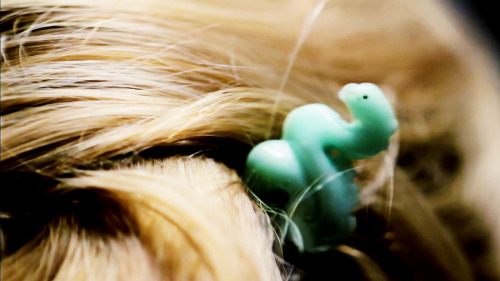
- From: Rome
- Registered: January 28, 2013
- Posts: 636
Re: The Hollow Crown: The Wars of the Roses (was "Richard III")
besleybean wrote:
Yes, I'm not sue it was Benedict either...but I still gave a squee!
No, it wasn't Benedict, obviously (far too short, don't you think?), but the boy's father twitted somewhere how thrilled his son was to do this scene and how Benedict helped him with it, showing how he should walked as a cripple.
- besleybean
- Threatened Knighthood
 Offline
Offline 
- From: Carnoustie, Angus, Scotland.
- Registered: October 4, 2012
- Posts: 21,376
Re: The Hollow Crown: The Wars of the Roses (was "Richard III")
Bless.
---------------------------------------------------------------------------------------------------------------------------------------------------------------
- nakahara
- Threatened Knighthood
 Offline
Offline 
- Registered: February 22, 2014
- Posts: 11,979
Re: The Hollow Crown: The Wars of the Roses (was "Richard III")
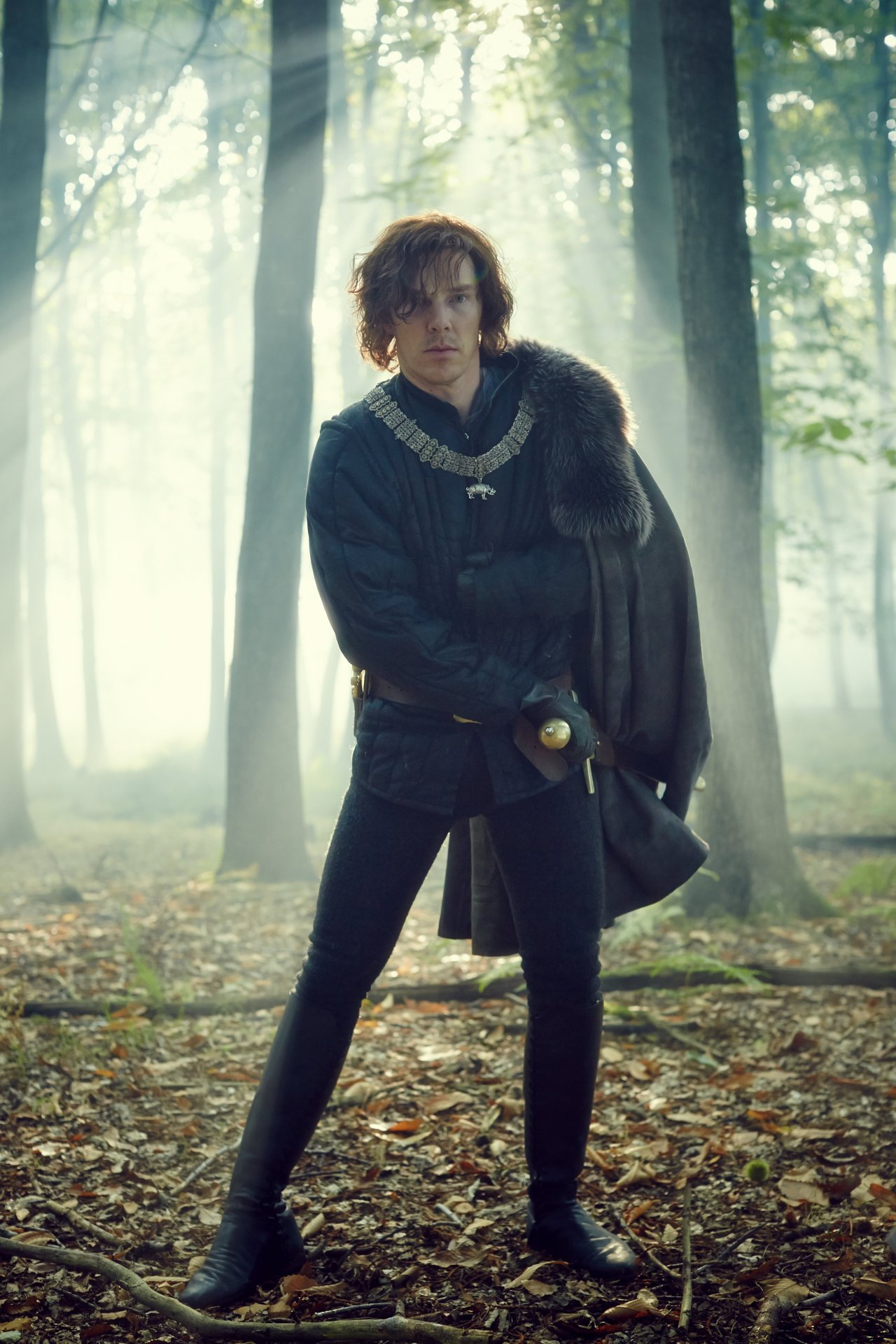
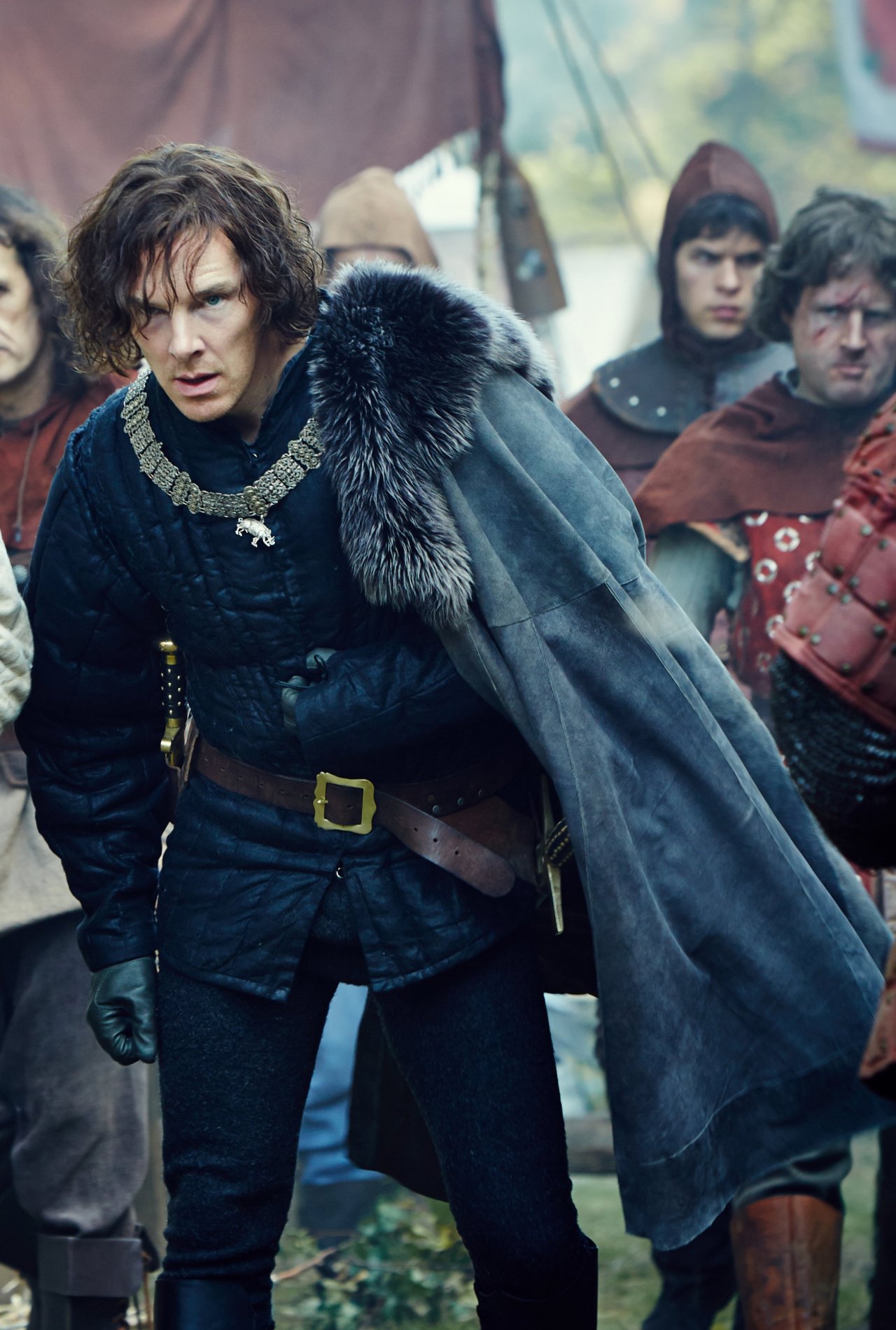
-----------------------------------
I cannot live without brainwork. What else is there to live for? Stand at the window there. Was there ever such a dreary, dismal, unprofitable world? See how the yellow fog swirls down the street and drifts across the dun-coloured houses. What could be more hopelessly prosaic and material? What is the use of having powers, Doctor, when one has no field upon which to exert them?

- SusiGo
- The game is never over (moderator)
 Offline
Offline 
- From: Germany
- Registered: June 5, 2012
- Posts: 22,965
Re: The Hollow Crown: The Wars of the Roses (was "Richard III")
Heavens, you should have posted a warning! ![]()
![]()
------------------------------
"To fake the death of one sibling may be regarded as a misfortune; to fake the death of both looks like carelessness." Oscar Wilde about Mycroft Holmes
"It is what it is says love." (Erich Fried)
“Enjoy the journey of life and not just the endgame. I’m also a great believer in treating others as you would like to be treated.” (Benedict Cumberbatch)

- besleybean
- Threatened Knighthood
 Offline
Offline 
- From: Carnoustie, Angus, Scotland.
- Registered: October 4, 2012
- Posts: 21,376
Re: The Hollow Crown: The Wars of the Roses (was "Richard III")
F.....g h..l!
---------------------------------------------------------------------------------------------------------------------------------------------------------------
- gently69
- One More Miracle
 Offline
Offline 
- From: Germany
- Registered: November 18, 2013
- Posts: 6,646
Re: The Hollow Crown: The Wars of the Roses (was "Richard III")
Did I mention already HOW I am looking forward to that performance???![]()
-----------------------------------------------------------------------------------------------------------------------------------------------------------------------------------------------------
Ten:" I'm burning up a sun just to say goodbye."
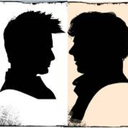
Sherlock: "I heard you.”
"Temptation coursing through our veins "
(Tony Hadley)

